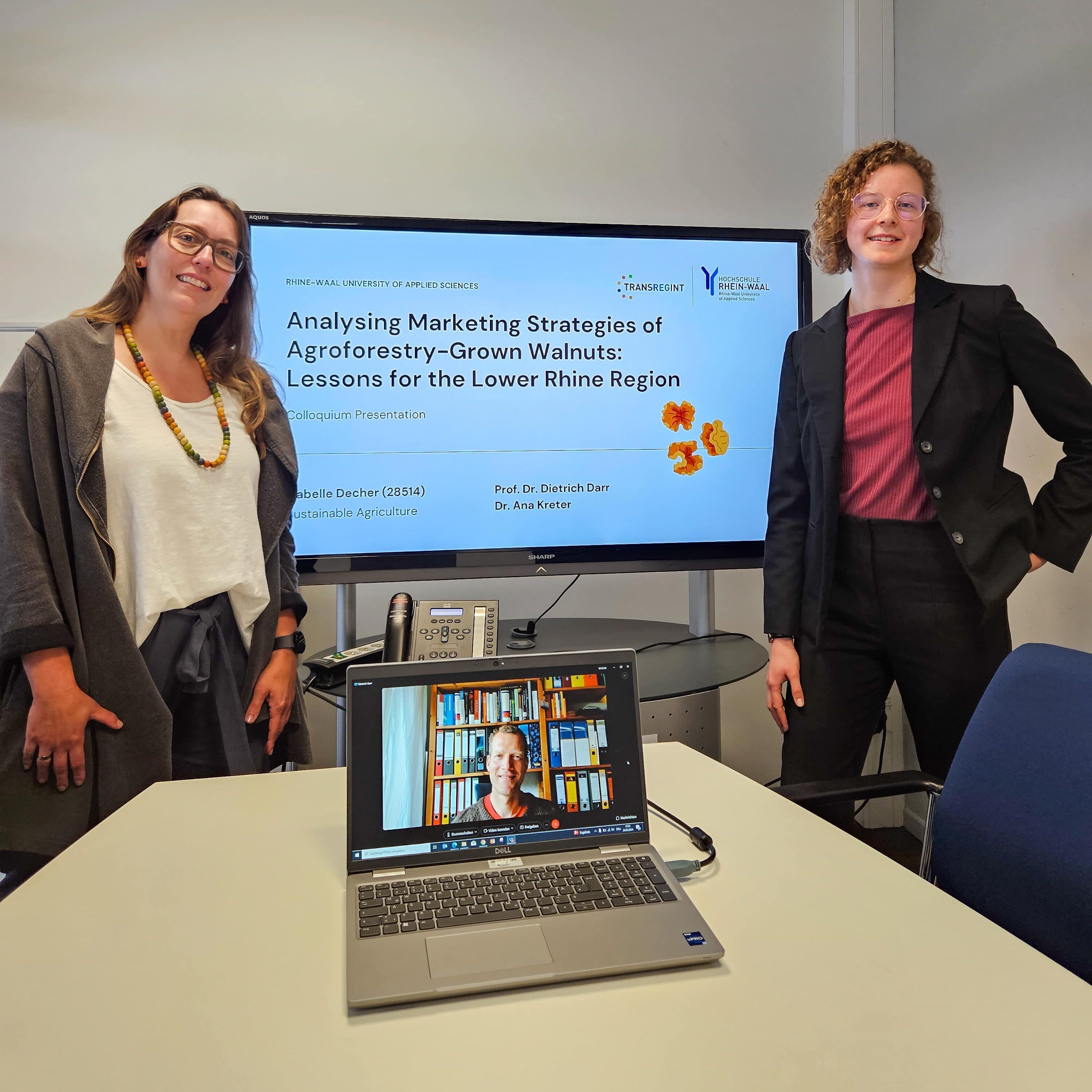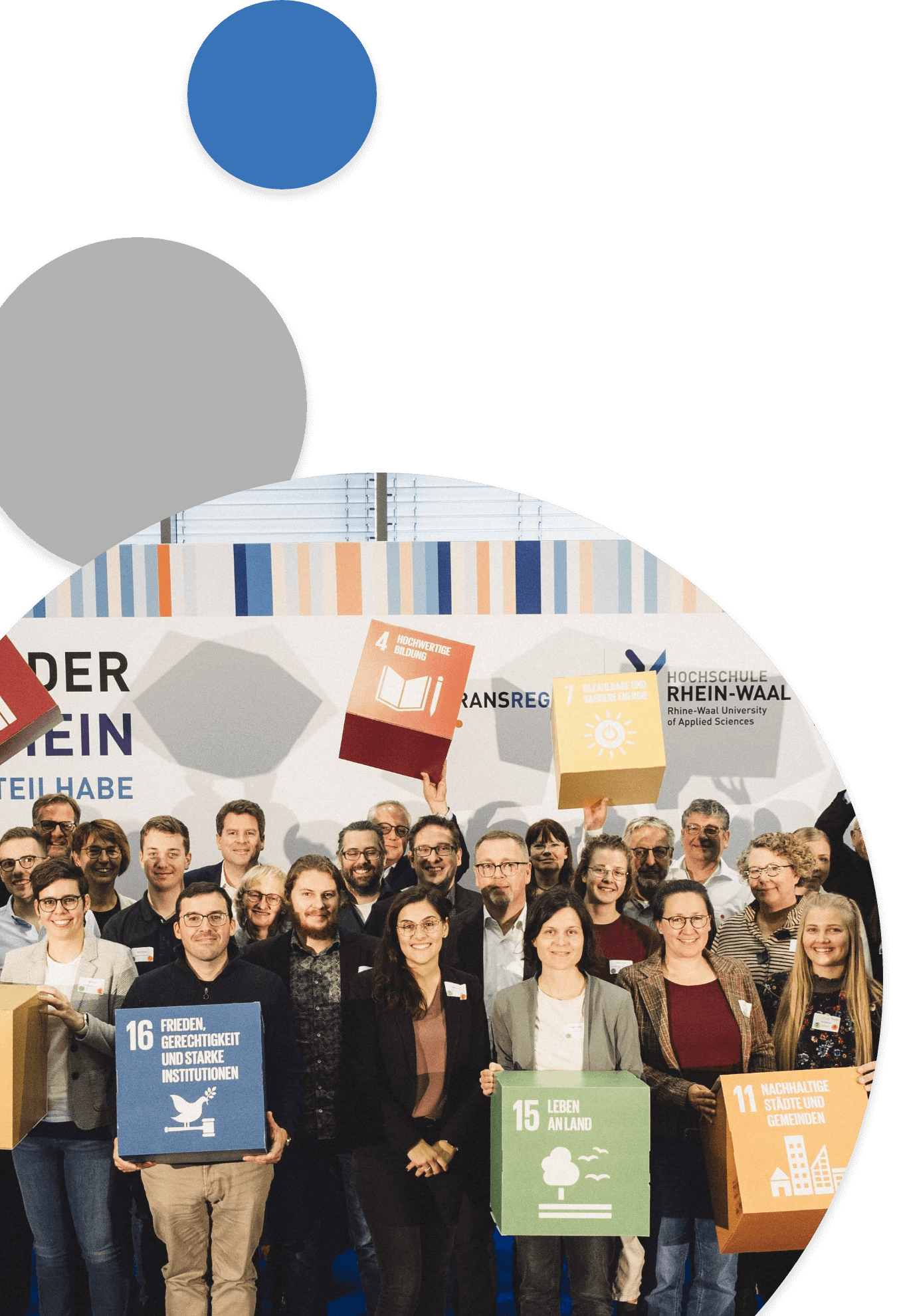
WALNUT-AGROFORST: SUCCESSFUL BACHELOR THESIS
We sincerely congratulate our former employee Isabelle Decher on her successful bachelor’s thesis. Last year, Isabelle not only supported our team in the Agroforstry Living Laboratory as a student assistant, but also won second prize with her project idea “Marktgarine” at the sustainability award Klever Birne.
In her Bachelor’s thesis, Isabelle developed a marketing strategy for a promising agroforestry product: walnuts. Agroforestry is the combination of trees and shrubs with arable crops and/or livestock farming on one plot of land. It is a centuries-old, tried-and-tested concept that has often been lost in the course of the industrialisation of agriculture. Our transformation project Agroforestry Living Laboratory aims to promote and re-establish this practice in the Lower Rhine region through scientific support, cooperation with local agriculture and knowledge transfer. Isabelle’s conclusion for the cultivation of walnuts is that there is a positive market situation in the Lower Rhine region.
“EVERY FARM HERE USED TO HAVE A WALNUT TREE”
– walnut producer in the Lower Rhine region
But why did Isabelle choose the walnut, of all things, as the subject of her Bachelor’s thesis? There are three reasons in favour of cultivating walnut trees: an increasing demand for walnuts in Germany in general, the fact that walnuts are already grown in Germany and are part of the local culinary culture, and the high content of unsaturated fatty acids and antioxidants, which make walnuts very healthy tree nuts.
In the interviews conducted with producers, one interviewee recalled the former normality of walnut trees: “Every farm here used to have a walnut tree, so at least one.” And even today, Isabelle notes in her work, the Lower Rhine with its mild climate, average rainfall and fertile soils is ideal for growing walnuts.
According to Isabelle’s research, new producers should offer walnuts and processed products that not only have a better flavour than imported walnuts, which currently make up the majority of walnuts consumed in Germany, but also help customers make a sustainable impact. Among other things, agroforestry means less use of pesticides, which in turn has a positive impact on biodiversity. Every agroforestry plantation therefore has a positive ecological effect for the entire region. Customers and consumers of local walnuts can therefore bring about sustainable change locally, including the social and economic level, as buying local walnuts strengthens local producers.
EXCURSION WALNUT AGROFORESTRY
On June 7th, as part of our Agroforestry Summer Week, there will be a guided tour of the walnut agroforestry on the Birgel farm in Kalkar.




Kommentare